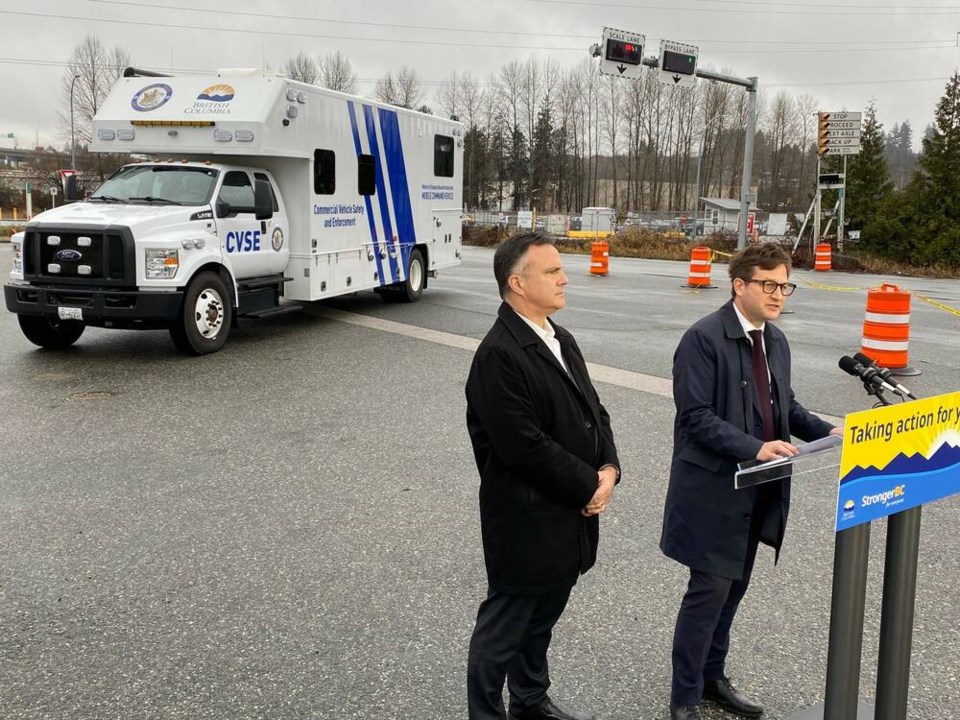The damage to the Highway 17A overpass in Delta, due to a big truck collision is one example for the needed for tougher measures to reduce infrastructure crashes involving commercial vehicles.
That was the message from BC Minister of Transportation and Infrastructure Minister Rob Fleming, joined by BC Trucking Association President and CEO David Earle, at the Nordel Commercial Vehicle Safety and Enforcement (CVSE) Station on Thursday, announcing additional action to reduce such costly collisions.
Noting there has been about 30 crashes involving infrastructure in the past 24 months but only a small percentage of drivers are the problem, Fleming outlined a “progressive enforcement system” including increased fines for various offences and escalating consequences for companies, including being grounded to a halt for repeat offences.
“We know these collisions have a huge impact on our province, in addition to the serious risk of injury to the driver and others around them. These crashes delay commuters and affect the movement of goods in our economy. The incident at the Highway 17A crossing in Delta is a good example of this. There’s a lingering impact and huge cost from needless collisions like these…With safety as our number one priority, we know we need to more. That’s why we’re taking tougher action to prevent these crashes,” said Fleming.
He stressed how carriers facing losing thousands of dollars a day will be a significant deterrent.
Fleming also noted fines will increase to $575 for over-height vehicles, but the province is talking with the trucking association regarding legislation that would significantly increase fines further.
Earle agreed halting commercial operators to undergo safety audits or pulling their carrier safety certificates completely for continued offences should be a significant deterrence.
A news release by the ministry notes, “Unprecedented penalties have recently been imposed by suspending a company’s entire fleet, while Commercial Vehicle Safety and Enforcement investigates a crash. The immediate suspensions and the significant cost they bring to a company will be a permanent tool. However, repeat offenders will face longer suspensions and may have their certificate to operate in B.C. revoked.”
Earle also said that while training is in place and multiple tools are available for drivers to prepare for trips, it seems “complacency is creeping in” for a few.
He added his association is working closely with the province on their “shared commitment to fostering a culture focused on risk-prevention in the trucking industry.”
Amendments to the Commercial Transport Regulations and the Motor Vehicle Act Regulations will also require dump-style vehicles to have in-cab warning devices by June 1, 2024. Those devices are to alert a driver if the dump box is raised when the vehicle is in motion.
Other measures include new speed-limiter regulations that will require heavy commercial vehicles operating in the province to have their speed-limiting systems activated and programmed by April 5, 2024.
A big rig smashed into the underside the Delta overpass that crosses Highway 99 on July 18.
The province has approved the final design for repairs but decided to delay the scheduled work until 2024, following additional consultation with the City of Delta and stakeholders.
The project is to be completed in early April.



